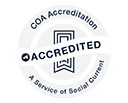Healthy Kids
It's important for children to grow up in a safe, loving, and secure environment. Use these tips as a guide to help your family develop skills to make safe and healthy choices every day.
Have a healthy pregnancy.
Do not smoke or drink alcohol during pregnancy to help prevent certain birth defects, premature birth and other health issues. Know your health history and make sure that you are up-to-date on your vaccinations.
Know the signs of child development.
As children grow, they should reach milestones in how they speak, learn and play. If you are worried about your child’s development, talk to your pediatrician.
Get check-ups and vaccinations.
Schedule routine check-ups, including dental and eye exams, for yourself and your children; and make sure everyone’s vaccinations are up-to-date.
Keep your children safe.
Use appropriately-sized car seats and seat belts. Keep harmful substances and objects out of children’s reach. Know the warning signs of abuse. Ask a trusted friend or family member to watch your children if you need a break.
Make healthy meals and snacks.
Eating right will help children build strong bones and stay healthy. For babies, breastfeeding is best. As children grow, help them choose healthy snacks like fruit over potato chips and soda.
Stay active.
Children should be active for at least one hour a day. You can join in on the fun too, and keep the whole family healthy.
Don’t smoke.
Smoking and exposure to secondhand smoke are harmful to you and your family. Stay smoke-free to help lower your children’s risk for sudden infant death syndrome (SIDS) and other health issues.
Monitor your child’s activities.
Children learn from you and other important adults in their lives, their friends, media and school. Know who they spend time with and what they are doing. Discourage TV viewing for children younger than 2 years of age and limit TV viewing and other “screen time” to no more than two hours per day for children 2 years and older. Check your child’s Internet browsing history frequently to ensure they are visiting age-appropriate websites.
Talk to your children.
Between work, school, sports and other activities, families don’t always have time to talk; but talking with your children is one of the most important things you can do to keep your children healthy. Let your children know how important they are and that you want to hear what they have to say; try to eat one meal together every day; schedule “family game nights” once a week; and most importantly, tell them you love them!
Additional Resources
Caring for Children with Chronic Health Conditions
Making Healthy Choices: A Guide for Caregivers and Caseworkers


 312-814-6800
312-814-6800